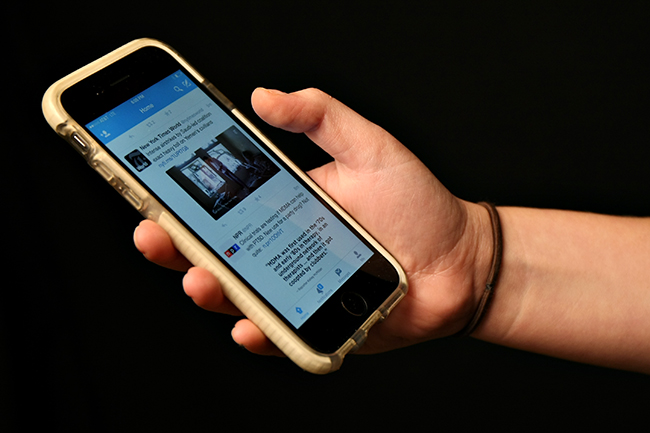It’s something that’s happened to all of us: You’ll be scrolling through Facebook and notice that a relative or old high school acquaintance has posted an article about a celebrity or politician that’s outlandish and obviously untrue. Fake news sites create these articles then promote them through Facebook to get advertising revenue through the clicks of gullible people. This phenomenon is reflective of issues with the internet and social media as a whole.
Fake articles recently got a lot of attention due to the results of the election. In the fallout following Trump’s win, pundits and politicians alike looked for something to blame. There were a myriad of factors that influenced the election outcome, but one that was largely overlooked until after the election was the impact of fake news. A huge number of Americans get their news from Facebook, which was inundated with a huge amount of fabricated news stories leading up to the election. False stories covering topics from a Clinton pedophile ring, which cites anonymous Reddit “experts” as its primary source, to Denzel Washington’s Trump endorsement were shared in huge numbers by people who put as much stock into them as they would a New York Times article.
The internet’s unaccountability is largely responsible for this phenomenon. Traditional media outlets such as MSNBC and Fox News, despite having a clear bias, give time to those with other viewpoints. Michael Moore’s recent appearances on Megyn Kelly’s show are an excellent example of this. However, while television viewers are forced to consume the views of those who disagree with them, those on the internet have no obligation to give time to the other side. Liberals and conservatives alike run the risk of becoming completely caught up in their own curated bubble, where the only news they consume reflects their own views.
Angela Lee, assistant professor of emerging media and communication at UT-Dallas, says the internet “drowns out the truth because rather than knowing where or whom to turn to, people end up only turning to, believing in and spreading things that they already believe in or biases they already have.”
This creates an environment where falsehoods can thrive. Fake news is only a symptom of the disease that is internet discourse. In order to combat fake news, these partisan bubbles that detach us from reality have to be destroyed.
It’s easy to call Trump supporters misogynist and racist, but dismissing them like that ensures that they’ll never come around to your point of view. Trump supporters calling Hillary supporters paid shills and Hillary supporters calling Trump supporters racist is not a substitute for actual discourse, and it only ensured that neither side took the time to understand the other. If both sides continue to ignore each other, we risk becoming more and more polarized and misinformed on both ends of the spectrum, doing things like banning a student organization such as the Young Conservatives from campus rather than debating them. Breaking down these echo chambers is essential to becoming a more informed and tolerant society.
Chastain-Howley is a rhetoric and writing junior from Dallas.





















